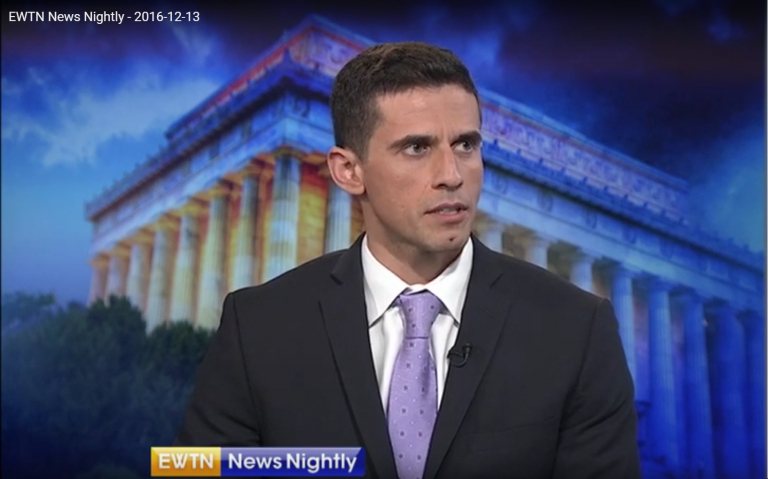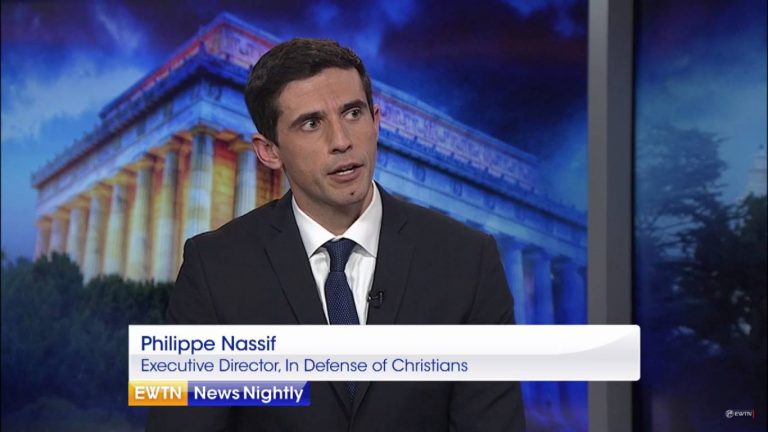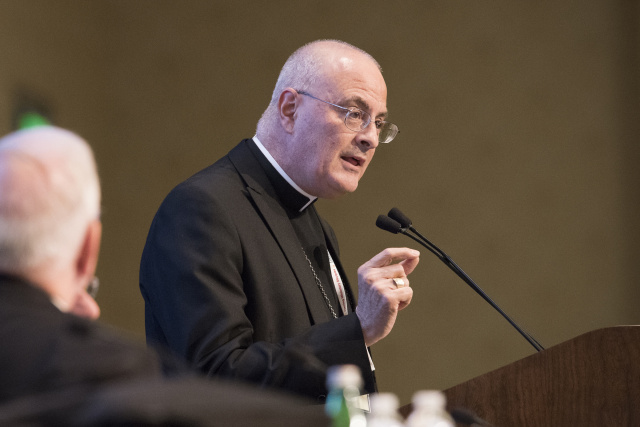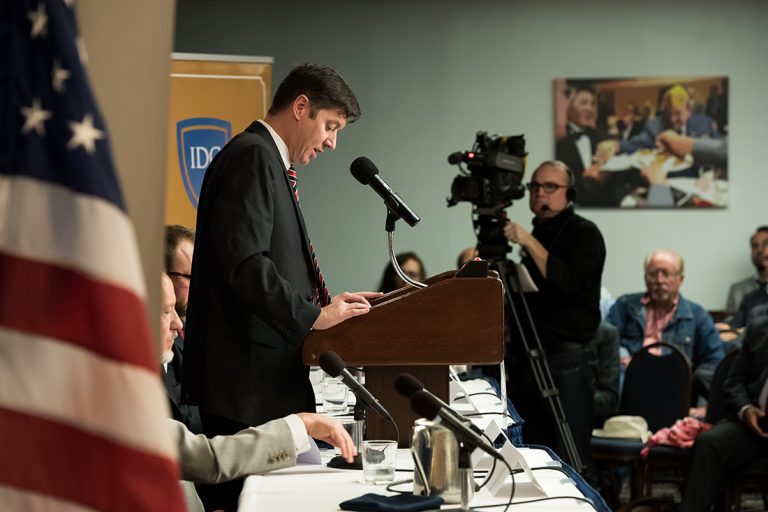“7 Days in Entebbe” recounts the events surrounding the 1976 hijacking of an Air France flight and capture of its Israeli passengers who were held for ransom in an attempt to force Israel to free imprisoned terrorists. The film is an offering of Focus Features and is led by a powerful pair, Rosamund Pike and Daniel Bruhl, who play two German pro-Palestinian terrorists who instigate the kidnapping plot. Both are incredibly talented and compelling performers. Sadly, “7 Days in Entebbe” did not give them the opportunity to portray characters that truly grip the viewer, as have many of their other credits. In fact, though they eat up 50 percent of the screen time between them, the viewer leaves feeling only pity toward them, which is worrying, as they are the perpetrators of the heinous act around which the entire film revolves.
Generally, “7 Days in Entebbe” is a well-produced, well-performed, and interesting movie. The pacing of the film at times seems alternatively rushed or too slow, but any time you are telling a story that all occurs in seven consecutive days, there are going to be challenges. The film sticks closely to the historical facts, which is welcome when dealing with such a sensitive set of events.
Even so, the film sounds discordant notes, leaving the viewer confused as to what they were supposed to take away. A major element of the story is a debate between Israel’s Prime Minister Yitzhak Rabin (played by Lior Ashkenazi) and Defense Minister Shimon Peres (played by Eddie Marsan) about whether Israel should negotiate with the terrorists or launch a rescue mission. A line we hear throughout is, “Eventually we have to negotiate, Israel can’t fight forever.” Half-way through the film Rabin decides they will make an attempt at negotiation, to the dismay of Peres who then redoubles his efforts to plan a military rescue. The negotiations turn up fruitless and instead a daring military rescue is launched. It is a work of mastery by IDF commandos who only suffer one casualty while rescuing the hostages and killing the terrorists. Yet, even in the moment of the mission’s stunning success, where fighting has triumphed over negotiation, Prime Minister Rabin says, “We can’t fight forever, eventually we have to negotiate.” The comment is baffling in context. It seems as though the filmmaker has told a story that does not support their message, so one of the main characters must reiterate it for the audience.
All of this aside, the primary element of the film I found troubling was the fact that, for two hours, the filmmaker attempted to make the viewer empathize with two German terrorists. These are villains who endangered the lives of hundreds of people and led to their own deaths and the deaths of upwards of 50 other people, most of whom were Ugandan soldiers caught in the crossfire. While the filmmaker takes the viewer on an interesting journey into the minds of these two terrorists, it is a disappointing journey at almost every turn.
Initially, they describe themselves as “humanitarians” and express their desire not to harm anyone. Throughout the film the two Germans struggle as they see their Palestinian compatriots become more violent with the hostages and begin to single out the Jews for special torment. One of them insists he’s not a Nazi, but this seems like a weak defense for the conspirator of a major hijacking with specific intent to target Jewish hostages and procure concessions from Israel.
There are three scenes where the filmmaker seems to take the opportunity to help the viewer dismantle the thinking of these two angsty, socialist hippies from a German domestic terror organization. First we see a friend of theirs trying to talk them out of the whole idea, citing the fact that they are doing it because they hate their capitalist country while living off the benefits of capitalism. “You’re a capitalist yourself, Wilfried,” their friend shouts, referring to the bookshop Wilfried owns. This advice is disregarded in favor of rhetoric about defending the Palestinian people from the imperialist nations, which had sided with Israel.
Second, as one of the Air France crew members is repairing a clogged pipe, which had been preventing the hostages access to running water, he mentions to Wilfried that one engineer like himself is worth 50 revolutionaries. Wilfried doesn’t contradict him, and the audience is left feeling the engineer is absolutely correct.
The final telling exchange occurs when the Palestinian in their group, whose family was killed by the IDF, asks the Germans why they are there and if they are ready to kill for the cause. He tells them that the Israelis and the Palestinians are ready to kill because the Israelis suffered in the Holocaust and the Palestinians now suffer without a state to call home. The implication that the Germans do not refute is that they have meddled in another people’s quarrel and aren’t ready for the consequences.
By the end of the film, Brigitte (Pike’s character) seems to be losing touch, and has a phone call with her boyfriend back in Germany into a broken payphone. In her conversation she questions everything she’s done.
After we’ve spent a huge amount of time with these socialist German terrorists, we are left viewing them as confused, pitiful, and helplessly in over their heads. At last, when they are killed by the IDF rescue team, we are shown a lingering shot of their bodies — victims of a conflict much bigger than themselves. Yet, they aren’t the victims. They are masterminds behind a terrorist act which they also executed. And thankfully, the daring and skill of the IDF kept them from doing more harm than they did.
Peter Burns (@peterburns_1861) is a contributor to the Washington Examiner’s Beltway Confidential blog. He is a government relations and policy associate at In Defense of Christians. Burns is a Philos Fellow and an alumnus of America’s Future Foundation’s Writing Fellowship.







